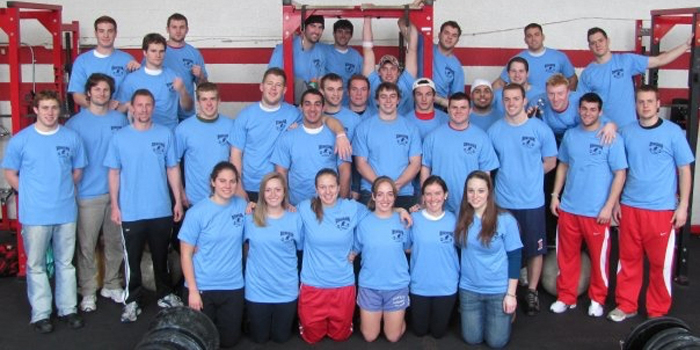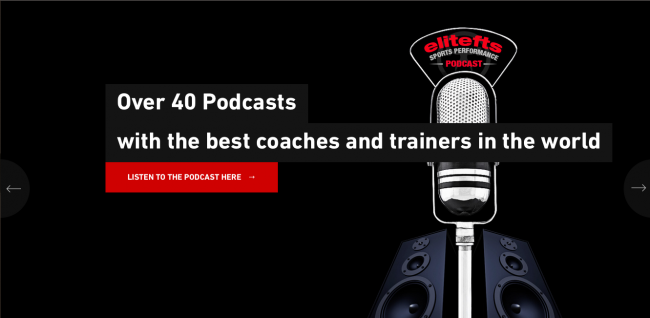
The Difference
John Maxwell's Big 5 Attitude Obstacles from his book, The Difference Maker: Making your attitude your greatest asset. These are adapted to the coaching profession and hopefully provide some insight on how to take on obstacles from the mental side.
1.) Discouragement
If the discouragement is created internally, this is a bigger problem than you think. Believing in what you feel is right is the most important step you can make. The actions and attitudes of others will often become the most discouraging sentiments. As hard as it is to change others perceptions, it is even harder to change other's attitude. That's why your own attitude has to be on point.
I have known many colleges that have overcome so many obstacles. They knew from day one that the best way to combat discouragement is to continually do what is right not matter what the opinion was. I have had good friends get fired while their superiors turned their heads and the sport coaches turned their backs. They went through what must have seemed like the epitome of "getting thrown under the bus".
I have had another friend who walked a way from a full-time Head S&C job because of a fundamental disbelief in how the head FB coach treated the players. That takes balls.
With the state of the profession the way it is and coaches fighting tooth and nail to land a shitty a coaching job that pays nothing and requires a ton of hours; leaving a job for what is right is not the norm.
Bottom line is, never work for someone who is afraid to lose their job in spite of upholding the principles that was supposed to drive you in your profession. Scared bosses will never have your back and will do what ever they need to to keep their jobs.
2.) Change
My heart sank every time there was a sport coaching change. The thought of starting over, trying to develop relationship with the new coach and emerging into a new culture was a huge stress.
Starting your entire communication process when a new coach is hired becomes difficult. That stress is absolutely magnified when you are the new coach and their are multiple coaches you are trying to get to know. Every change brings opportunity. Starting over without misconceptions is the optimal situation. Having a reputation can work for and against you. This will depend on the perception of the sport coach. The sport coach will have already made judgements based on what their players, assistants (if retained), and athletic trainers have communicated. Most perceptions are created from secondary sources. Reaffirming or changing those perceptions is essential and needs to happen as soon as possible.
3.) Problems
This is truly what exposes people's character. People that go through tough times are almost always better for it. I was a better strength coach after years of having 23 sports with no assistants. Coaches with less resources utilize those resources much more efficiently.
It is hard to prepare young coaches for the trials they will need to endure if they survive grind and become head strength coaches. The amount of time that you actually coach athletes and write programs is minimal to the time you spend on policies, procedures, scheduling, sport coach communication, budgets, NCAA regulations, facility management, etc.
Coaching under stress is what separates good from average coaches. I have seen first hand the difference between young coaches and how their home lives have correlated to how they handle stress. It doesn't matter whether it is attributed to family situation, socio-economic status, or environment; the more obstacles someone had to go through, the more they are prepared for obstacles they will have to go through.
4.) Fear
According to Maxwell, fear is a third of a cycle that also includes lack of experience and ignorance. Coaches deal better with change to longer they are coaching. Going through a change the second and third time is much easier to deal with mentally and emotionally. The fear of change, being wrong, or being unprepared can cause paralysis by analysis. The less experienced a coach is, the less ignorant they should be to other ideas.
Having an open mind as a coach always allows for an easier transition. I realized this almost too late when I was hired at Army. I was an Olympic Lifting advocate with a WSBB background. Coaching at the institution where High Intensity Training was invented was a huge change for me. The staff there all had a HIT background but they all made me think about the why and made me a better coaches because I had to justify everything I did. It wasn't about being right or wrong, It was about believing in what you are doing regardless of the environment. That situation made me a better coach.
5.) Failure
As a football coach, I was in charge of the Punt and Punt returns teams for most of my career. Punt team is the worst Special teams to coach because so much can go wrong. There could be bad snap, it could be blocked, and finally you can give a a big return. That is why you had to make sure you had players with the intestinal fortitude to stand tall in a stress-filled environment on this team. They are going to have to protect the punter, cover the field, and make an open field tackle.
Punt Team Requirements
- Blocking 1-3 opposing players running at you while performing a kick-slide or standing still
- Sprinting 40-50 yards down the field and maintain your lane while being blocked by 1-2 opposing players
- Make an open-field tackle on one of the opposing team's most explosive player
There are so many things that can go wrong. It is easy to coach athletes "not to fail" as opposed to coaching them to succeed. As we all know, the difference is how we live up to that failure.
On the other side of the ball, coaching punt return, there was a time where I was defeated as a coach after giving up a fake punt for a touch down. This was after roughing the punter a few series before. When I finally got over the fact that we failed on those plays, flushed it and started to coach aggressively again; we finally started to execute and become a factor on special teams. Eventually, where team didn't want to punt to us. The goal is to knowledge the mistake, learn from it, flush it, and develop the "next snap mentality."
It is no different as a strength coach. Notice how your attitude changes when one of your athletes gets hurt during a workout (it does happen even with the best coaches). It is very as to doubt yourself after this happens. Own up to it, be humble enough to know you may have contributed while being confident enough it may not all be your fault. Attitude is contagious and your athletes will feed of of yours.
TRAINING
Tuesday AM
Snatch from High Blocks (mid-thigh) / Hang
50kg for 17 Doubles (1 from blocks, 1 from hang)
- Sets 1-6: Two reps every 30 seconds
- Sets 7-13: Two reps every 45 seconds
- Sets 14-17: Two reps every 60 seconds
TUESDAY PM
DE Circuit (3 rounds)
- DE Box Squat
- Box Jumps
- Low Cable Rows
SS Yoke Bar Box Squat
- 240 for 3 triples
Box Jumps 3x3
Low Cable Row with Mag Grips
- 170 for 3 sets of 6









